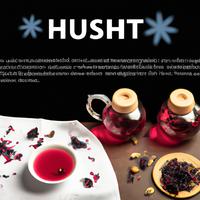
1 serving (240 grams) contains 2 calories, 0.0 grams of protein, 0.0 grams of fat, and 0.5 grams of carbohydrates.

Log this food in SnapCalorie

Nutrition Information
Calories |
2.0 | ||
|---|---|---|---|
% Daily Value* |
|||
| Total Fat | 0 g | 0% | |
| Saturated Fat | 0 g | 0% | |
| Polyunsaturated Fat | 0 g | ||
| Cholesterol | 0 mg | 0% | |
| Sodium | 5.0 mg | 0% | |
| Total Carbohydrates | 0.5 g | 0% | |
| Dietary Fiber | 0 g | 0% | |
| Sugars | 0.1 g | ||
| protein | 0 g | 0% | |
| Vitamin D | 0 mcg | 0% | |
| Calcium | 2.0 mg | 0% | |
| Iron | 0.1 mg | 0% | |
| Potassium | 20.0 mg | 0% | |
* Percent Daily Values are based on a 2,000 calorie diet. Your daily values may be higher or lower depending on your calorie needs.
Food Attributes
Source of Calories
About Karkade tea
Karkade tea, also known as hibiscus tea, is a vibrant, ruby-red herbal infusion made from dried hibiscus flowers. Originating from North Africa and the Middle East, it is particularly popular in Egyptian and Sudanese cuisine, though its refreshing tart flavor has gained global appeal. Naturally caffeine-free, Karkade tea is rich in antioxidants like anthocyanins, which support heart health by promoting healthy cholesterol levels and blood pressure. It also contains vitamin C, aiding in immune function and skin health. The tea is often enjoyed hot or cold, sometimes sweetened to balance its tangy profile. While it boasts numerous health benefits, excessive consumption may pose concerns for individuals with low blood pressure or those taking certain medications. Moderation is key. Widely valued for its hydrating and revitalizing properties, Karkade tea is both a flavorful delight and a functional addition to wellness routines.



